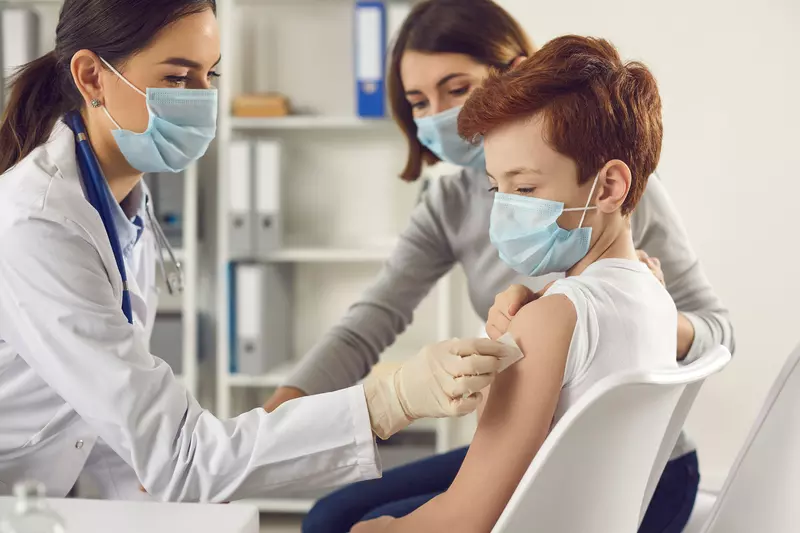|
Authored by:
- AdventHealth
|
Estimated read time:

Choose the health content that's right for you, and get it delivered right in your inbox
And then there are issues with not keeping infants rear-facing long enough or moving children to booster seats before they're ready. Says Caron, Local fire and police departments, as well as safety programs, offer assistance and instruction in car seat installation and I highly recommend parents take advantage of it. Also, keep in mind that car seats have an expiration date and used or expired car seats can be dangerous. 4. Medications: Reports show annually 59,000 children in the US end up in the ER after accidental poisoning by ingesting medicines. Children under age 3 account for most of these ER visits after swallowing medicines like pain relievers, vitamins and diaper cream. Kids got into their grandparents' medications in 48 percent of these cases. It goes without saying that all medications need to be kept away from kids, but parents and grandparents may be underestimating their little ones ability to find and open bottles, says Caron. You can't just rely on childproof caps, because if you can open those, a determined kid can too. Use Dosing Devices, Not Kitchen Spoons
Keep all medications prescription and over-the-counter in a cabinet completely out of children's reach. And be sure to use the dosing device that comes with medications and not a kitchen spoon because that can result in accidental overdoses. 5. Button Batteries and Magnets: Button batteries are becoming more common around the house, but they're very dangerous to young children. Children younger than 3 years like to put interesting looking objects in their mouths and a button battery certainly looks attractive small and shiny, says Caron. When these become stuck in the esophagus, the caustic battery acid can cause a lifelong disability by eating through the wall of the esophagus. Just like other batteries, keep button batteries away from children and monitor items powered by them to decrease your child's chances of swallowing one. Magnets
If swallowed, magnets can stick together and compress portions of the bowel wall between them causing loss of blood flow to the bowel and possibly leading to perforation and bowel obstructions. Magnets should be kept strictly away from children and parents should know that kids who have swallowed magnets may have symptoms like abdominal pain, vomiting and fever that are pretty common in children but not commonly caused by an ingested object, Caron says. It's vital that swallowed magnets be found and removed as quickly as possible to minimize any consequences. 6. Hot surfaces/substances: Burns and scalds from hot liquids are some of the most common childhood accidents. The most common causes are: Steam, hot bath water, spilled coffee or hot tea, or cooking fluids Flames or hot objects, like the stove, fireplace or curling/flat irons Chemical burns from swallowing substances like drain cleaner or spilling chemicals on the skin Electrical burns from sticking fingers in electrical outlets or biting electrical cords Overexposure to the sun One common cause of burns in young children is ramen noodle soups in Styrofoam containers. The noodles get very hot and hold heat for a long time, so they represent a significant burn risk for kids, explains Caron. The key to preventing most scalds and burns is looking at your home from a kids point of view. Keep hot cooking liquids away from the edge of the counter where little hands can reach. Use outlet covers. Put caustic chemicals or cleaning where children can't get to them. Set your hot water heater to 120 degrees. And always limit your child's exposure to the sun and use SPF 20-50 sunscreen every two hours on children over six months of age. Infants should never be out in the sun.
7. Bikes, scooters, skateboards, etc.: We all want our kids to be active as opposed to being tethered to their electronics, but when children are outside on bikes, scooters, skateboards and rip sticks without helmets, the results can be tragic.
In the ER, we frequently see children who fall off bikes or skateboards and receive head injuries because they weren't wearing a helmet, says Caron. As soon as kids are old enough to ride a bike or scooter, they need to wear helmets and parents need to enforce that rule. And parents should remember Florida law requires anyone under 16 who is riding a bike to wear a helmet. A traumatic brain injury can be life-changing, as well as life-threatening. There's just no excuse: wear a helmet. 8. Automobiles: Teens have an 89.2 percent chance of being involved in a crash during the first three years of driving. Probably the single-most dangerous thing to a teen might be in the driveway, says Dr. Maulfair. Make sure your teen has been taught proper and safe driving techniques and be a good example by paying attention when you drive. Don't use your phone or text while driving, says Maulfair. The car and everything that surrounds it other drivers, friends, distractions, lack of proper seat belt use make it potentially the most dangerous situation your teenage child encounters. Know where your closest ER location is in case of these home emergencies.


